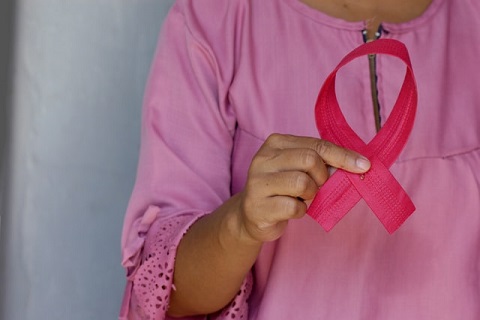Introduction
According to the Indian Council of Medical Research (ICMR), the situation is reversed in our country, although men are the most affected by cancer in countries around the world. Yes … it has been revealed that women are the most affected by cancer in India and breast cancer is the most affected by them.
It is worrying that in the last 20 years, it has become a life-threatening disease. With October being observed around the world as Breast Cancer Awareness Month, the Government of India is also raising awareness among women.
The latest report from the National Cancer Registry (NCRP) says shocking news that the number of cancer patients is likely to increase from 13.9 million in 2020 to 15.7 million by 2025 (which is almost 20% higher).
However, one good thing is that we can prevent one-third of all common cancers. Of all types of cancer, breast cancer is more common in women in Indian cities, especially in cities like Delhi, Bangalore and Chennai.
Causes and Symptoms of Breast Cancer
There is no specific cause for breast cancer. Basically cancer is caused by changes in the genes that control the growth and death of cells. In women, a lump in the breast can cause more bleeding during menstruation and even after menopause. While some of the above causes cannot be reversed, one-third of breast cancers can be prevented with the worst risks by eating and taking a few steps.
Breast Cancer on Globally and other parts of our country
Globally, the United States, China and India rank in the top three in the number of breast cancer cases. The disease, which has hitherto been more prevalent among those over 50, is now in its 30s.
In particular, women from metro cities like Delhi, Chennai, Bangalore, Mumbai, Thiruvananthapuram and Pune are the most affected by breast cancer, according to statistics from the Medical Research Institute.
What are chances for breast cancer?
Early puberty in women, marriages after the age of 30, continuous hormonal treatments for infertility, artificial insemination such as test tube babies, and delayed menopause have all been found to be major causes of breast cancer. Also, relatives, especially if the mother or sister has breast cancer, have a 10% higher chance of developing breast cancer.
This statistic suggests that the presence of the genes BRCA 1 & 2 on chromosomes can also cause breast cancer. It also outlines lifestyle changes such as obesity, lack of exercise, smoking and alcoholism, high blood pressure, diabetes, the World Cancer Center, unhealthy Western eating habits, and high-fat diets.
How to protect and what expert says?
“Up to 10% of breast cancers are hereditary and more than 90% are related to lifestyle factors such as obesity, alcohol, smoking, unhealthy diet, exposure to chemicals and hormones (estrogen), late menopause, and reproduction,” said Fortis Hospital, Bangalore. ) Says Dr. Niti Raizada, Director of Medical Oncology and Hematology.
It is important to know how to diagnose such a horrible disease. Gynecologists say that we can easily diagnose cancer with our own breast self-examination and by going to the hospital for a mammogram.
For women over the age of 25, a ‘Self Breast Examination’, self-examination of their breasts at least once a month, is a must. Within 7 to 10 days of menstruation, you can stand in front of a mirror and examine yourself to see if there is a difference between the two breasts, by pressing and rubbing with the four fingers of that hand.
During the examination, if you notice any other symptoms such as lump or swelling in the chest, excessive contraction of the breast skin, bleeding in the breast, seeks the help of a doctor immediately.
After that, a screening test called a mammogram is the most important test. The ‘mammogram’ is actually an X-ray test to help diagnose breast cancer early. However, the low-dose X-rays used in this can detect new changes in the breast.
Even if there are no tumors in the breast, this ‘mammogram’ test can show signs of tumors and changes in calcium levels. The advantage of this is that the disease can be detected and treated before it occurs.





[…] See what the Ayurvedic medical expert has to say about this breastfeeding. […]